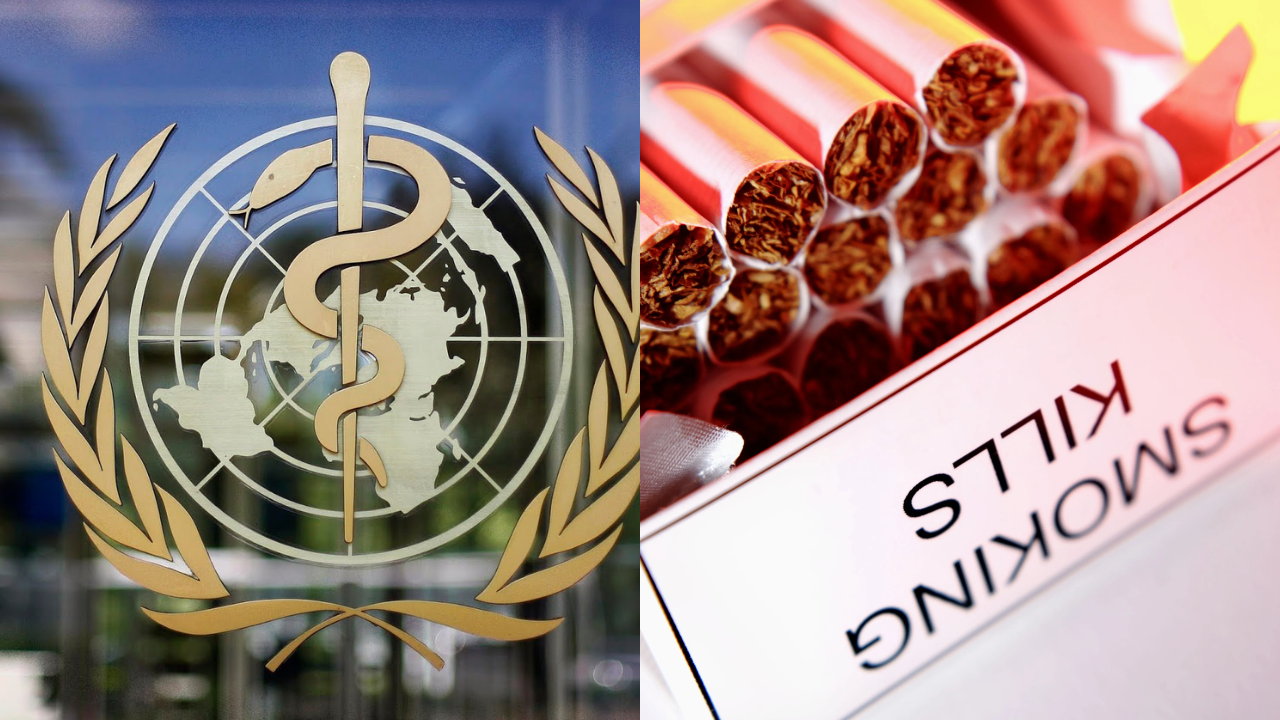HEALTH

SECOND-HAND SMOKE CLAIMS 1.3 MILLION LIVES ANNUALLY – WHO WARNS
The World Health Organization (WHO) has revealed that about 1.3 million people die each year due to exposure to second-hand smoke.
This alarming figure is part of the Global Tobacco Epidemic 2025 report, unveiled at the World Conference on Tobacco Control in Dublin. The report warns that tobacco control efforts are under increasing pressure from industry interference and calls for urgent global action to strengthen anti-tobacco policies.
The report highlights the importance of the WHO MPOWER strategy — a set of six effective measures designed to curb tobacco use, which claims over 7 million lives annually. These measures include:
Monitoring tobacco use and preventive policies
Protecting people from second-hand smoke through smoke-free laws
Offering help to quit
Warning about tobacco dangers via labels and mass media
Enforcing bans on advertising and promotion
Raising tobacco taxes
According to the report, 79 countries have enacted comprehensive smoke-free laws, covering one-third of the global population. Since 2022, six countries — Cook Islands, Indonesia, Malaysia, Sierra Leone, Slovenia, and Uzbekistan — have adopted strong anti-smoking regulations, particularly in the hospitality sector, despite pushback from the tobacco industry.
Since 2007, 155 countries have implemented at least one MPOWER measure at a best-practice level. As a result, over 6.1 billion people — about 75% of the world’s population — are now protected by at least one of these policies, up from just 1 billion in 2007.
Four countries — Brazil, Mauritius, the Netherlands, and Türkiye — have fully implemented all six MPOWER strategies. Meanwhile, seven more, including Ethiopia, Ireland, Jordan, Mexico, New Zealand, Slovenia, and Spain, are only one step away from full implementation.
However, the WHO expressed concern that 40 countries still lack any MPOWER measure at the best-practice level, and over 30 nations allow cigarette sales without mandatory health warnings.
“Two decades after the adoption of the WHO Framework Convention on Tobacco Control, we’ve made significant progress, but the tobacco industry is constantly adapting — and so must we,” said WHO Director-General, Dr. Tedros Adhanom Ghebreyesus.
The 2025 report, produced with support from Bloomberg Philanthropies, was launched at the Bloomberg Philanthropies Awards for Global Tobacco Control, which honoured governments and organizations making strides in reducing tobacco use.
Michael Bloomberg, founder of Bloomberg Philanthropies and WHO’s Global Ambassador for Non-communicable Diseases, noted: “Since 2007, we’ve seen major changes in how countries tackle tobacco use, but there’s still much work to do.”
Among the most significant achievements, the report notes, are graphic health warnings on tobacco products, which have proven highly effective. However, enforcement remains inconsistent, especially with smokeless tobacco packaging still underregulated.
The report also introduced a new data portal to monitor each country’s progress from 2007 to 2025. Despite global improvements, 110 countries have not run any anti-tobacco campaigns since 2022.
Still, the percentage of the global population covered by best-practice campaigns has risen from 19% in 2022 to 36%.
The WHO urged governments to close regulatory gaps, enforce existing laws, and invest in evidence-based public health campaigns.
“Governments must act decisively to close gaps, strengthen enforcement, and expand proven life-saving tools. No one should be left behind in the fight against tobacco,” said Dr. Ruediger Krech, WHO’s Director of Health Promotion.
"This represents a significant development in our ongoing coverage of current events."— Editorial Board









